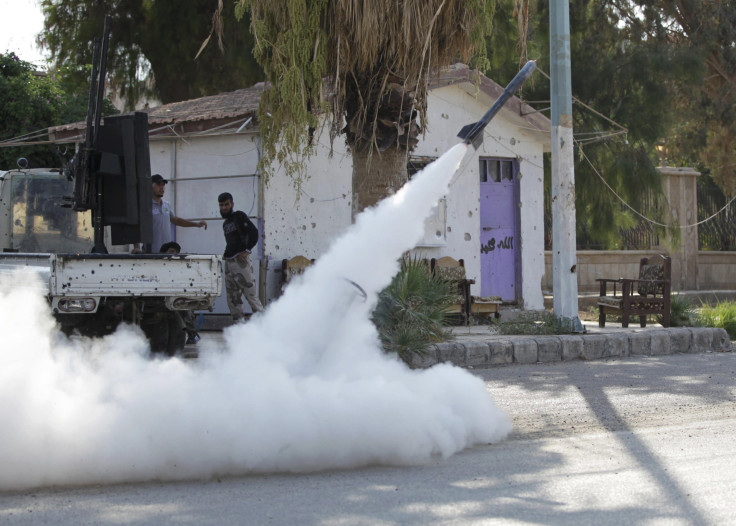US-Backed Syrian Rebels Are Overrun, Pushed Out Of Turkey Border Crossings

A Syrian rebel group supported by the U.S. government, Harakat Hazzm, was pushed out of its headquarters on the border of Turkey and Syria on Friday, and lost control of one of the only two open border crossings between the two countries. The area around the Bab al-Hawa crossing, in northwestern Syria on the road to Aleppo, was taken over by rebel groups linked to extremist factions such as Jabhat al-Nusra, the official al Qaeda offshoot in the country. That will make it easier for foreign extremist fighters to travel into Syria.
For months, officials from the U.S. and its Western allies have said they are increasing efforts to track down foreign fighters to prevent them from returning to their original countries with military training and commit massacres like the ones in Paris earlier this month. The wife of one of the attackers, who may have been involved in plotting the action, fled France and made her way to Syria via Turkey.
Turkey remains one of the main ways, if not the only way, for foreign fighters and supporters of the Islamic State group to get into Syria. Until now, the crossings on the Turkish-Syrian border have remained, at least partially, in the hands of groups monitored and supported by the U.S. But now, Bab al-Hawa is in the hands of Ahrar al Sham, a group that has fought alongside Jabhat al-Nusra.
Leaders from Ahrar al Sham, which is known among rebels as a "swing group" that fights on the side of various rebel brigades as it finds convenient, released a statement Friday saying they took over Harakat Hazzm's headquarters and the Bab al-Hawa border crossing, citing an "accumulation of errors" and a "multitude of abuses."
The statement says that Harakat Hazzm, at the time of the takeover, was fighting off forces from Jabhat al-Nusra. Friday's events on the ground are still murky. IBTimes has reached out to commanders on the ground at the Bab al-Hawa border crossing for clarification, but hasn't received a response.
Alliances between opposition groups in Syria have shifted constantly since the beginning of the war four years ago. In recent months, rebel groups have broken previously established relationships to form other groups. In December, a video surfaced of a ceremony honoring the unification of some rebel entities in a group now called the Levant Front, coming from groups like the Islamic Front (which includes Ahrar al Sham), the Mujahedeen Army, Fastaqim Kama Umirt -- a unit of the Free Syrian Army -- and the Asala wa-al-Tanmiya Front.
But despite the formation of the Levant Front, some of the brigades in it still continue to work with Jabhat al-Nusra. That coordination with radicals linked to al Qaeda could now affect the flow of foreign fighters into Syria.
A statement by the Islamic Front says #Hazzm was heavily attacked by #JN! Isn't the #US "supporting moderate rebels"! pic.twitter.com/u4rRet4uWb
- Oula A. Alrifai (@OulaAbdulhamid) January 30, 2015Ahrar al Sham, though it works closely with rebel groups in the Islamic Front, a semi-moderate group, previously has been targeted by U.S. airstrikes. Harakat Hazzm, the group that Ahrar pushed out of the border crossing, was one of the main beneficiaries of U.S. matériel and financial aid, but lost most of that support when it began losing battles to Jabhat al-Nusra last year.
Senior U.S. officials have acknowledged publicly that the rebels in the north were failing and needed more support. IBTimes broke the story that the U.S. government was beginning to scale back its aid to groups in the north, and was beginning to vet new groups in the south.
Secretary of State John Kerry said in November that the U.S. was engaging in new efforts to save the so-called moderate (i.e. not Sunni Islamic extremist) rebels from total defeat. Those forces, he said, "did not fare well in their battles and one or two of them folded into al-Nusra, which is disturbing." The rebels are, according to Sen. John McCain, R-Ariz., "on the verge of collapse."
© Copyright IBTimes 2024. All rights reserved.





















